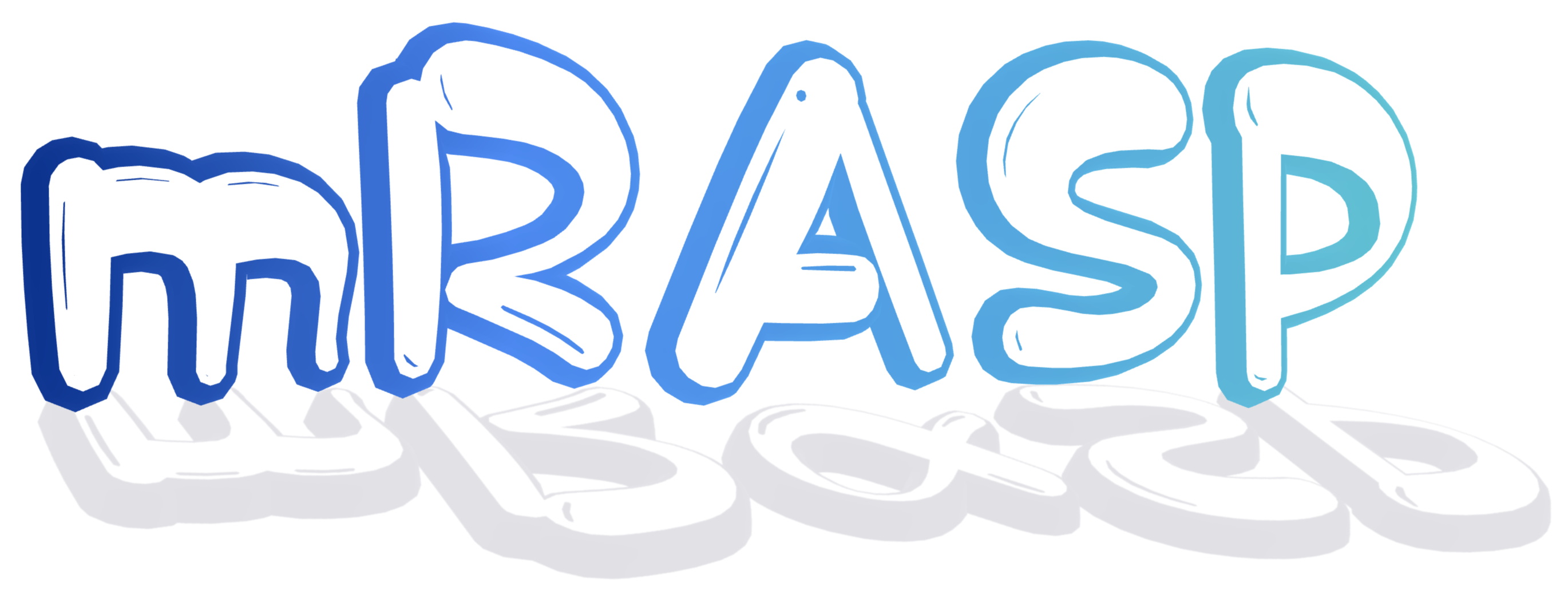Lei Li
Carnegie Mellon University
I am an Associate Professor in the Language Technologies Institute of the School of
Computer Science at
Carnegie Mellon University. I am also affiliated with
CMU CyLab, CMU-Pitt CompBio, and University of California Santa Barbara Computer Science Department. I work
on generative AI for language and science, including
multilingual NLP, machine translation (text, speech),
security of large language models, agentic LLM, and AI
for drug discovery and protein design.
Students at CMU are welcome to send me email regarding indendent/direct study, internship, and capstone projects.
 New paper in Nature Communications on benchmarking generative AI for DNA tasks. DNALongBench
New paper in Nature Communications on benchmarking generative AI for DNA tasks. DNALongBench
 CMU team achieved the Top-1 scores in IWSLT 2025 simultaneous speech translation competition (English-Chinese and English-German). The paper is here.
CMU team achieved the Top-1 scores in IWSLT 2025 simultaneous speech translation competition (English-Chinese and English-German). The paper is here.
 3 papers are accepted by ACL 2025 (1 Main + 2 Findings). Topics include simultaneous speech translation, LLM watermark detection, and multilingual translation for 400+ languages.
3 papers are accepted by ACL 2025 (1 Main + 2 Findings). Topics include simultaneous speech translation, LLM watermark detection, and multilingual translation for 400+ languages.
 We successfully organized the 2nd Generative AI for Biology workshop, collocated with ICML 2025.
We successfully organized the 2nd Generative AI for Biology workshop, collocated with ICML 2025.
 3 papers are accepted by ICML 2025. Topics include protein-protein complex design, LLM copyright and safety.
3 papers are accepted by ICML 2025. Topics include protein-protein complex design, LLM copyright and safety.
 Six papers (4 Main + 2 Findings) are accepted by NAACL 2025. Topics include machine translation with LLM, scaling LLM inference time compute, efficient finetuning.
Six papers (4 Main + 2 Findings) are accepted by NAACL 2025. Topics include machine translation with LLM, scaling LLM inference time compute, efficient finetuning.
 4 papers are accepted by ICLR 2025. Topics include LLM watermark (permute-flip), LLM reasoning, speculative LLM knowledge distillation.
4 papers are accepted by ICLR 2025. Topics include LLM watermark (permute-flip), LLM reasoning, speculative LLM knowledge distillation.
- Two papers are accepted by NeurIPS 2024. Topics include GenAI watermark and LLM reasoning in non-English languages.
- Seven papers are accepted by EMNLP 2024, including three main, three Findings, and one system demo papers. Topics include LLM preference learning, multilingual LLM training (LLaMAX), evaluation, and MT analysis tool.
- One paper is accepted by KDD
2024 about Counterfactual Molecule Property
Explanation through Reinforcement Learning.
- Three papers are accepted by
ACL 2024 (including two Findings), topics including
Self-bias
in LLM, LLM for
translating any language (even endangered
languages), and Understanding
LLaMA's Multilingual capability by analyzing its
vocabulary.
- Three papers are accepted by
ICML 2024, topics including protein design (SurfPro
and EnzyGen)
and copyright
content detection in LLM training.
- Two papers are accepted by
NAACL 2024 - Findings, about refinement
for LLM and evaluating
LLM for multilingual translation.
- One paper is accepted by
ICLR 2024 about LLM watermark to detect AI generated
text.
- One paper is accepted by
AAAI 2024 LLM for wildlife conservation.
- Four papers are accepted to EMNLP 2023 (including two to Findings). Using Study Assistant to Correct LLM Mistakes, InstructScore, Automatic Planning of Decision Making tasks, adpating NLP encoders to generators
- Two papers are accepted to NeurIPS2023. LLM Code
Generation for Algorithmic problems, and Assessing
Knowledge in LLMs.
- New paper about designing peptides to kill bacteria is accepted to KDD 2023.
- 5 new papers are accepted to ACL 2023. Topics include Speech Translation, Evaluation metric SEScore2, Machine translation for 440 languages, Zero-shot LLM, Negative Knowledge in LLM.
- 3 new papers are accepted to ICML 2023. Topics include Protein Design, Watermark for Language Generation, Speed up Diffusion.
- New papers at EMNLP 2022: Model Protection Model correction on factual knowledge, Unsupervised Text Generation Metric - SEScore.
- Our paper on accelerated training of Transformers on GPUs is accepted to SC 2022. The opensource software is released at github link
- Our paper analyzing the user engagement and activeness on content-based social media platforms is accepted to KDD 2022.
- Our paper on the learning of Non-autoregressive Transformers is accepted to ICML 2022.
- 3 papers are accepted to NAACL 2022 (2 in main and 1 in Findings), about speech translation, multilingual text generation, and privacy preserving NLP.
- 7 papers are accepted to ACL 2022 (4 in main and 3 in Findings), about speech translation, document translation, non-autoregressive translation, and representation learning.
- Our paper on bridge construction robot is accepted to ICRA 2022.
- Two papers is accepted to ICLR 2022. about multilingual NLP and multilingual translation.
- Three papers are accepted to AAAI 2022. Topics include natural language reasoning for fact verification, unsupervised counterfactual story editing, and non-autoregressive translation.
- The paper on reversible machine translation model is accepted to NeurIPS 2021. Check out here.
- 6 papers are accepted to EMNLP 2021, three to main confrence, and three to the Findings of EMNLP. The topics are machine translation, information extraction, and summarization.
- One paper extending the SOLO framework for instance segmentation is accepted to TPAMI.
- One paper about 3D instance segmentation is accepted to IEEE Robotics and Automation Letters.
- Our paper Vocabulary Learning via Optimal Transport for Neural Machine Translation won the best paper award at ACL 2021.
- Two papers are accepted to IROS 2021.
- One paper is accepted to InterSpeech 2021, about multi-task progressive pretraining for speech translation, achieving new SOTA results on MuST-C benchmarks.
- Dr. Mingxuan Wang and I will be giving a tutorial on Pre-training methods for Neural Machine Translation at ACL 2021, July 31
- 11 papers to appear at ACL 2021 (6 long, 4 findings, and 1 system demo). Strong results in machine translation and speech translation. Other topics include parallel generation, reasoning, summarization and information extraction.
- 1 paper is accepted to ICML 2021 about long horizon skill learning.
- 4 papers (1 main and 3 industry) are presenting at NAACL 2021. Check out the long paper about how visual imagination will influence machine translation capability.
- Four papers on object detection and segmentation are accepted to CVPR 2021, including Sparse R-CNN, DenseCL, Locate-Segment, Auto-Augment. DenCL is accepted as Oral.
- The paper on finding proper molecules for drug is accepted to ICLR 2021 with the spotlight presentation!
- Six papers are accepted to AAAI 2021, about end-to-end speech translation, knowledge graph completion, optimization, text generation.
- One paper about new method to generate query-relevant bidwords for search advertising is accepted to WSDM 2021.
- SOLOv2 is out! One paper about faster object instance segmentation in images is accepted to NeurIPS 2020.
- Winner of 5 tasks in WMT20 Machine Translation Contest on Chinese-English, German-English, French-German, English-Khmer, English-Pashto languages. Winner of the WMT20 parallel data filtering task on Khmer and Pashto languages.
- 5 papers accepted to EMNLP 2020! 3 in Long track and 2 in Findings.
- SOLO paper accepted to ECCV 2020, achieving the SOTA in visual object instance segmentation.
- 1 paper accepted to ICML 2020, about solving a family of deep latent models (exponential family mixture VAEs).
- 1 paper and 1 demo accepted to ACL 2020, about tailoring pretrained language model and the robot reporter Xiaomingbot.
- I am giving a talk at ICLR 2020 about Learning Deep Latent Models for Text Sequences. You may watch here.
- 1 paper accepted to AIStats 2020, about density ratio estimation for text generation.
- 2 papers accepted at ICLR 2020, about mirror generative model to unite language modelling and machine translation, and learning data-to-text generation templates via a variational method even without parallel corpus.
- 4 papers accepted at AAAI 2020, about pretraining method for neural machine translation, text editing, and approximate second order optimization.
- 1 paper accepted at NeurIPS 2019, about contextualized embedding for text generation and how we use kernels to model distribution and variance of word embeddings. see you in Vancouver.
- EMNLP 2019 Tutorial on Discreteness in NLP
- 1 paper accepted at INLG 2019. It is about the style transfer for text generation .
- 1 paper accepted at EMNLP 2019, about linear time neural machine translation.
- 2 papers accepted at ICCV 2019. One is to be presented as an Oral talk.
- Dr. Hao Zhou and I are going to give a tutorial on deep generative models for text generation at NLPCC-ADL 2019 at Dunhuang, China.
- DNALongBench
- LLM/VLM copyright detection: DE-COP and DIS-CO
- InfiniSST: simultaneous translation with unbounded streaming speech. paper
- Protein Design: EnzyGen - A unified generative AI model for 3000 families of enzymes [paper.
- LLM Reasoning (weak LLM helps strong LLM). [arxiv]
- LLM Watermark: Unigram-Watermark to detect AI generated text, and GINSEW to defend against model extraction attack.
- InstructScore: Text generation evaluation metrics with explanation.
- CGMH: A method for controllable text generation from specified keywords. [arxiv]
- Analyzing anisotropic sentence embeddings from pre-trained language models. [arxiv]
-
 Data-efficient methods for many-to-many neural
machine translation. [mRASP,
mRASP2]
Data-efficient methods for many-to-many neural
machine translation. [mRASP,
mRASP2] - Glancing Transformer (GLAT): non-autoregressive translation models are equally good as autoregressive Transformer. [arxiv]
- VOLT: Learning vocabulary via optimal transport (ACL 2021 Best Paper). [arxiv]
- SOLO: Fast and accurate object instance segmentation. [SOLO, SOLOv2]
